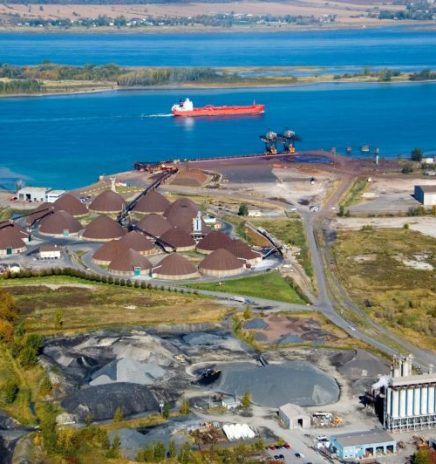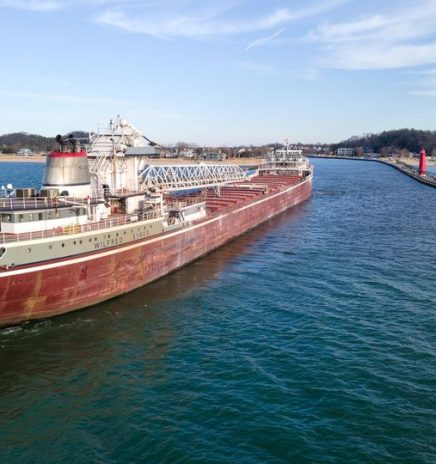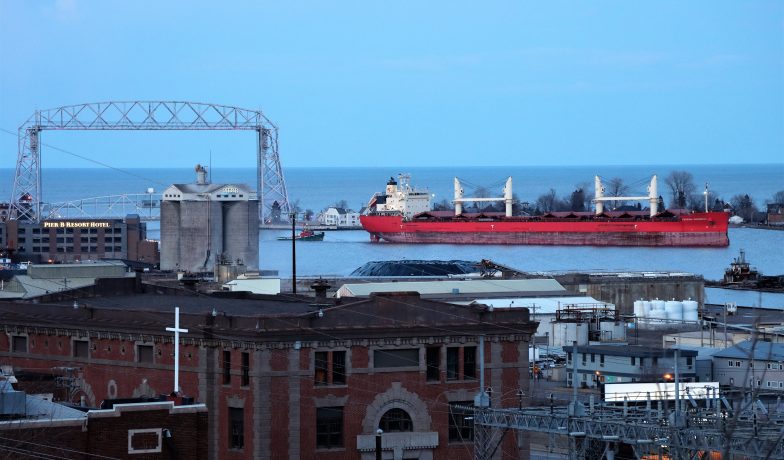CMC Calls on Canada to Focus on Economy in Response to Possible U.S. Tariffs
As the threat of a trade war with the United States looms, the Chamber of Marine Commerce (CMC) is calling on Canadian government leaders to focus on economic and trade imperatives that will support jobs, build competitive advantage in an increasingly challenging global marketplace and mitigate cost of living increases. Specifically:
Imperative #1: Eliminate the barriers to trade that are within Canada’s control as a means of mitigating the damage of the trade war involving the U.S. The CMC has suggested two ways to accomplish this initiative.
- Changing the Canada Border Services Agency (CBSA) so that it promotes trade instead of inhibiting it. One way to remove a self-inflicted barrier to trade would be to have the CBSA give ports the appropriate level of customs clearance capacity to receive imported container goods. The CBSA must prioritize trade facilitation in addition to carrying out the security aspect of its mandate, otherwise the agency is only overseeing supply chain choke points. At present, CBSA only operates five marine container examination facilities in Canada: Halifax, Saint John, Montréal, Prince Rupert and Vancouver. This is causing strained ports of entry and pressures on trade relationships, especially considering most provinces and key trading hubs along the Great Lakes-St Lawrence Corridor, including the Greater Toronto Area, are completely without such facilities. The Chamber of Marine Commerce, in partnership with its coalition allies, has called for immediate action on this issue.
- Working with provinces to address barriers to interprovincial trade. There are a number of barriers that continue to inhibit the movement of goods, services and labour between Canadian provinces and territories, which in turn stymies economic opportunity and reduces Canada’s global appeal as a location for investment and business development. Per the Canadian Chamber of Commerce, estimates indicate that trade barriers are unnecessarily constraining growth, constraining Canada’s economy by an estimated 7 percent, which is significant self-inflicted damage at a time when our longstanding trade ties with the U.S. are being dramatically reshaped.
Imperative #2: Invest in key marine infrastructure to promote stronger and more sustainable supply chains. In recent years the United States Government has announced unprecedented infrastructure funding for ports and waterways, but the Government of Canada has not invested in the same manner.Unless the Government of Canada increases its investment in programs such as the National Trade Corridors Fund, the nation runs significant risk of being uncompetitive on the global stage and losing economic development opportunities to the United States.
Imperative #3: Achieving a balanced regulatory environment that avoids disadvantaging Canadian companies. A prime example of the Government of Canada handicapping Canadian businesses through regulation would be its approach to ballast water regulations. At present, United States ship operators are exempt from requirements to have specific ballast water management systems onboard vessels that move cargo on the Great Lakes, but Canadian operators are not granted the same consideration. The equipment has been proven ineffective in use on the Great Lakes, and costs millions of dollars to install, maintain and operate. In light of this, we ask that Transport Canada immediately correct this burdensome requirement, and that the Government of Canada act swiftly to address other regulatory misalignments.
Imperative #4: Invest in Workforce Development. 43% of the marine workforce in Canada is expected to retire in the next decade, and it will be necessary to fill an estimated 19,000 jobs onboard Canadian vessels within that timeframe. These realities highlight a concern for supply chain strength, but also an opportunity with respect to the availability of exciting career opportunities for Canadians. Economic strength is shaped by many factors, but one of the most important is the availability of human resources, and through marine workforce development, Canada would gain long-term competitive advantage. This logic is already being employed by the Government of Ontario, which made workforce development a primary pillar in its first-ever Ontario Marine Transportation Strategy. The CMC has suggested areas where the Government of Canada could provide immediate assistance.
- Recognizing seafaring as a skilled trade, allowing seafarers to be eligible for Employment and Social Development Canada funding;
- Making funding available for training and upskilling; and
- Better coordinating and aligning government departments and processes to bridge the workforce gap for seafarers.

Montreal Port Authority Receives Federal Authorization to Advance Contrecœur Expansion
The Montreal Port Authority (MPA) has received authorization from Fisheries and Oceans Canada to expand its port facilities in Contrecœur and continue construction of the new container terminal. Issued under the Fisheries Act and... Read More

General Cargo Down, Grain Trade Up on the Great Lakes in 2025
Preliminary traffic results released by the St. Lawrence Seaway Management Corporation (SLSMC) show 37 million metric tons of cargo transited the Great Lakes-St. Lawrence Seaway system during the 2025 navigation... Read More

